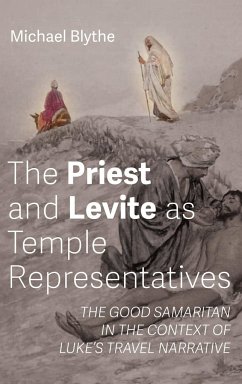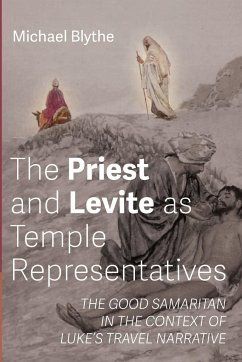
The Priest and Levite as Temple Representatives
Versandkostenfrei!
Versandfertig in 1-2 Wochen
33,99 €
inkl. MwSt.
Weitere Ausgaben:

PAYBACK Punkte
17 °P sammeln!
The parable of the good Samaritan is well-known, yet scholarship has not plumbed the depths of its meaning within its first-century Palestinian context. For the majority of Christian history, the parable has suffered either from extreme allegorical treatments or from unimaginative readings limiting the parable to a single-point example story of virtue. A creative reading employing social and historical methods generates a refreshing telling of the story, within Jesus's context, whereby each variable, from the Samaritan to the priest and even the innkeeper, takes on representative forms, not on...
The parable of the good Samaritan is well-known, yet scholarship has not plumbed the depths of its meaning within its first-century Palestinian context. For the majority of Christian history, the parable has suffered either from extreme allegorical treatments or from unimaginative readings limiting the parable to a single-point example story of virtue. A creative reading employing social and historical methods generates a refreshing telling of the story, within Jesus's context, whereby each variable, from the Samaritan to the priest and even the innkeeper, takes on representative forms, not only indicative of widespread concerns from Jesus's audience, but also becoming symbols of the eschatological age when the new temple supplants the old.














